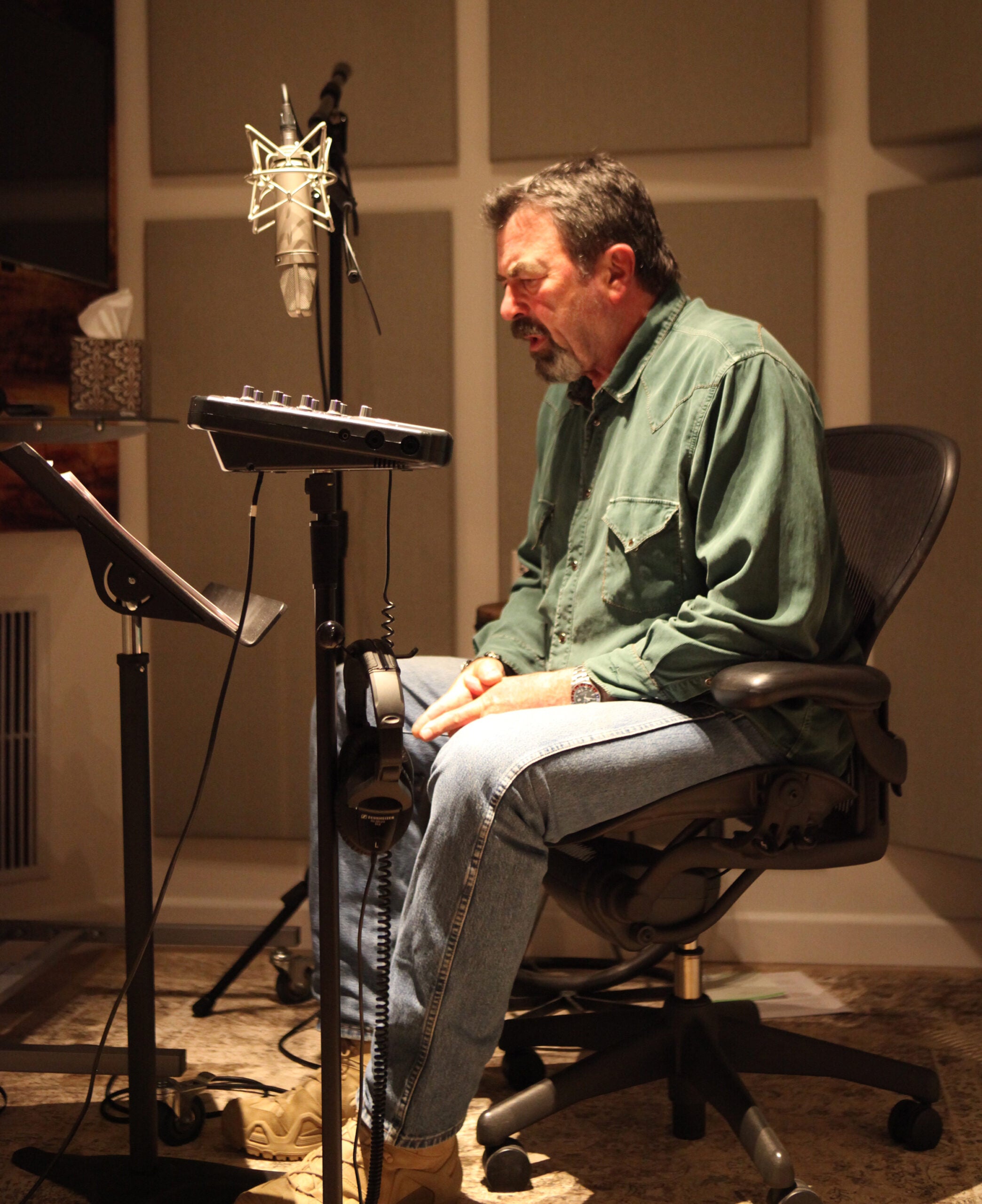KINGSTON, R.I., Nov. 16, 2016—The actor Tom Selleck made a name for himself hunting down bad guys in the 1980s television series, Magnum, P.I. These days, he’s heralding the good guys as narrator of a World War II film written, directed and produced by a University of Rhode Island graduate.
“Remember Pearl Harbor’’ is the latest documentary from Tim Gray, a 1989 journalism graduate who has spent the last decade interviewing World War II veterans and turning their stories into award-winning films shown worldwide.
The 84-minute film has not only won an Award of Excellence from the Indie Fest, but was also selected to officially debut in Pearl Harbor on the 75th anniversary of the attacks in December. It will air on 125 PBS stations throughout the country.
How did he get Selleck to narrate? “I just asked,’’ says Gray. “And he said yes—right away.’’
The film, to be shown Dec. 4 in World War II Hangar 79 on Ford Island in Pearl Harbor, features interviews with veterans who witnessed the Dec. 7, 1941 attack, which led to the United States’ entry into the war.
More than 35 World War II veterans are interviewed, including those who served on the USS Arizona, which was bombed during the attack, killing 1,177 officers and crewmen. The film also has a rare interview with Mitsuo Fuchida, flight leader of the Japanese air attack.
Gray says he was honored to get Selleck. “Tom was the first person I thought of to narrate since he has a strong connection to Hawaii from his Magnum, P.I. days (the series was filmed there), was in the National Guard when he was younger and, simply, has a great voice.’’
Gray says he spent two days on the phone with Selleck while he narrated the documentary in a studio in California. Selleck, now starring in CBS’ Blue Blood, is the ultimate perfectionist and did each read two to three times until he felt it was right, Gray says.
“He knew how important this project is and was nothing short of phenomenal to deal with,’’ says Gray. “Just a great guy who understood the significance of the project. We had time to talk about other things as well—his love for the Detroit Tigers and his strong interest in the stories of World War II.’’
Gray even told Selleck about his 1988 encounter with another Magnum, P.I. actor. “I was with the URI basketball team doing radio while in college, and the team was in a tournament in Hawaii. We were on the flight over from L.A., and up in first class was one of the stars of Magnum, P.I., Roger Mosley, who played T.C in the show. I went up to first class, introduced myself and brought Mosley back to meet the team in economy class. They all knew who he was. In fact, Jimmy Christian, a guard on the team and now the head coach at Boston College, yelled out ‘T.C.!’ and the whole plane kind of woke up at that point. Kind of funny.’’
Gray, who grew up in Kingston, studied journalism at URI and worked as a sports anchor at Channel 10 before he went into filmmaking, pursuing a topic that had interested him since childhood: World War II.
He’s the founder of The World War II Foundation, the only organization in the country that, with private contributions, makes films about veterans and donates the movies to American Public Television and its PBS affiliates throughout the world.
In addition to two other Indie Fest awards, Gray has won five regional Emmy awards and American Public Television’s highest award for programming excellence.
Working with local photojournalist Jim Karpeichik—whose daughter, Katrina, graduated from URI in 2016, and wife, Elaine, graduated in 1988—Gray has produced 16 other films. His productions have received kind words from everyone from documentary filmmaker Ken Burns to Patriots coach Bill Belichick.
For Gray, it’s a labor of love. His mission, as he sees it, is to tell the veterans’ stories before it’s too late. Of the 16 million veterans who fought in the war, less than a million are left, with 750 dying every day.
“The window is closing now,’’ says Gray. “We need to preserve these stories so that future generations understand we are who we are because of the sacrifice and courage of the World War II generation.’’
He has four more films in post-production for 2017 and 2018 that focus on the war in Europe and the Pacific. “Writing is my passion,’’ he says, “and that underpinning was established at URI.’’

